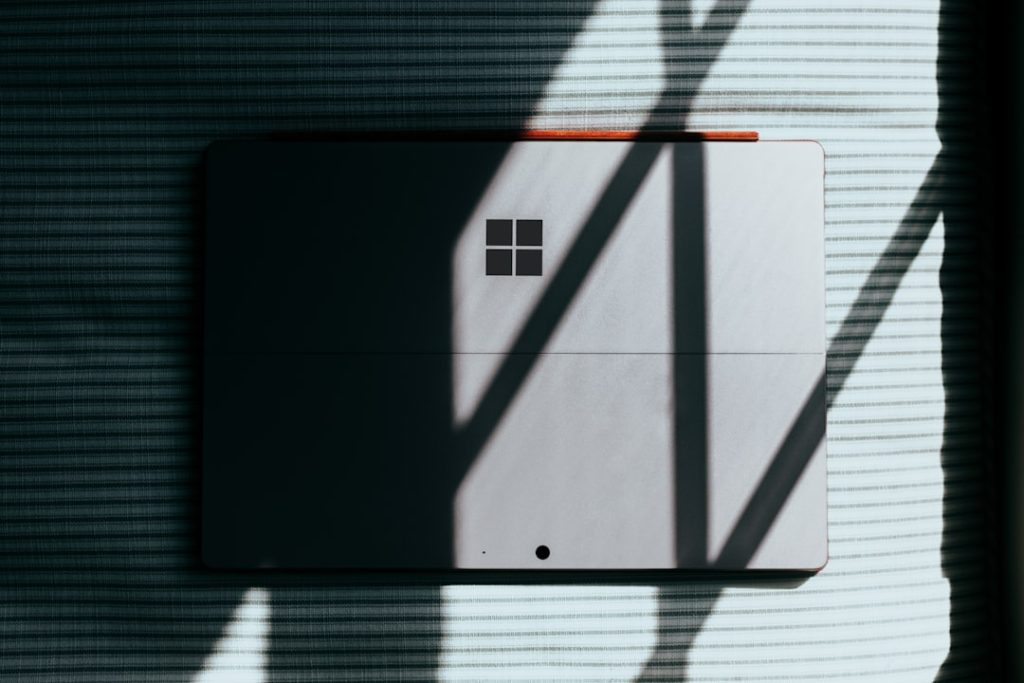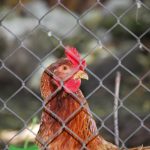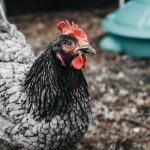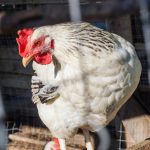Heat stress is a significant concern for chickens, particularly during hot summer months. Chicken owners must be able to identify signs of heat stress in their flock to prevent illness or mortality. Common indicators include panting, wings held away from the body, reduced egg production, lethargy, and decreased appetite.
Chickens may also display signs of distress such as pacing, restlessness, or aggression towards other flock members. Vigilant observation of flock behavior during hot weather is crucial, as early detection of heat stress can significantly impact the prevention of serious health issues. Recognizing heat stress symptoms in chickens is vital for their well-being.
In addition to physical signs, it is important to monitor overall flock behavior. Chickens spending more time in shaded areas or avoiding direct sunlight may indicate they are experiencing heat-related discomfort. Observing water consumption patterns can also provide valuable insights into the flock’s condition.
Increased water intake may suggest that chickens are attempting to cool down and regulate their body temperature. By understanding and identifying heat stress signs in chickens, owners can implement proactive measures to ensure their flock’s health and safety during hot weather.
Table of Contents
Key Takeaways
- Signs of heat stress in chickens include panting, holding wings away from the body, decreased egg production, and lethargy.
- Providing adequate shade and shelter is crucial to protect chickens from direct sunlight and overheating.
- Proper ventilation in the coop is essential to allow hot air to escape and cool air to circulate.
- Offering cool treats and fresh water can help chickens stay hydrated and regulate their body temperature.
- Adjusting feeding and watering schedules to cooler times of the day can help prevent heat stress in chickens.
Providing adequate shade and shelter
Providing Adequate Shade and Shelter
One of the most important steps in preventing heat stress in chickens is to provide them with adequate shade and shelter. This can be achieved by ensuring that the chicken coop is located in a shaded area, or by providing additional shade structures such as tarps or umbrellas. It’s also important to make sure that the coop is well-ventilated and that there is plenty of airflow to help keep the chickens cool.
Natural Shade and Comfort
Additionally, providing access to natural shade such as trees or bushes can also help to keep chickens comfortable during hot weather. By providing adequate shade and shelter, chicken owners can help to minimize the risk of heat stress and ensure the well-being of their flock.
Coop Design and Materials
In addition to providing shade and shelter, it’s also important to consider the materials used in the construction of the coop. For example, using light-colored roofing materials can help to reflect sunlight and reduce the amount of heat absorbed by the coop. Additionally, providing insulation in the coop can help to regulate the temperature and keep chickens cool during hot weather. It’s also important to consider the size of the coop and the number of chickens it houses, as overcrowding can contribute to increased heat stress.
By providing adequate shade and shelter, as well as considering the materials and design of the coop, chicken owners can create a comfortable and safe environment for their flock during hot weather.
Ensuring proper ventilation in the coop

Proper ventilation is crucial for preventing heat stress in chickens. Without adequate airflow, the coop can quickly become hot and stuffy, leading to discomfort and potential health issues for the flock. To ensure proper ventilation, it’s important to have windows or vents in the coop that can be opened to allow fresh air to circulate.
Additionally, installing fans or exhaust systems can help to improve airflow and keep the coop cool during hot weather. It’s also important to regularly clean and maintain the coop to prevent the buildup of dust and debris that can impede ventilation. By ensuring proper ventilation in the coop, chicken owners can help to create a comfortable and healthy environment for their flock.
In addition to providing natural ventilation through windows and vents, it’s also important to consider the placement of the coop in relation to prevailing winds. By positioning the coop so that it receives a natural breeze, chicken owners can help to improve airflow and keep the coop cool. It’s also important to consider the design of the coop, as certain layouts or materials may impede ventilation.
By taking these factors into consideration and implementing appropriate ventilation measures, chicken owners can help to minimize the risk of heat stress and ensure the well-being of their flock during hot weather.
Offering cool treats and fresh water
Offering cool treats and fresh water is an effective way to help chickens beat the heat during hot weather. Cool treats such as frozen fruits or vegetables can provide a refreshing snack for chickens and help to lower their body temperature. Additionally, providing access to cool watermelon or cucumbers can also help to keep chickens hydrated and cool during hot weather.
It’s important for chicken owners to regularly monitor and replenish water sources to ensure that their flock has access to fresh, cool water at all times. By offering cool treats and fresh water, chicken owners can help to keep their flock comfortable and healthy during hot weather. In addition to offering cool treats and fresh water, it’s also important to consider the timing of feeding and watering during hot weather.
For example, feeding chickens during the cooler parts of the day can help to prevent them from overheating while digesting their food. Similarly, providing access to fresh water throughout the day is essential for keeping chickens hydrated and cool. By adjusting feeding and watering schedules to account for hot weather, chicken owners can help to ensure that their flock remains healthy and comfortable during periods of high temperatures.
Adjusting feeding and watering schedules
During hot weather, it’s important for chicken owners to adjust feeding and watering schedules to help prevent heat stress in their flock. Feeding chickens during the cooler parts of the day, such as early morning or late evening, can help to prevent them from overheating while digesting their food. Additionally, providing access to fresh water throughout the day is essential for keeping chickens hydrated and cool.
It’s also important for chicken owners to monitor water consumption and replenish water sources regularly to ensure that their flock has access to cool water at all times. By adjusting feeding and watering schedules during hot weather, chicken owners can help to prevent heat stress and ensure the well-being of their flock. In addition to adjusting feeding and watering schedules, it’s also important for chicken owners to consider the nutritional needs of their flock during hot weather.
For example, providing electrolyte supplements can help to replace essential nutrients lost through sweating and panting. Additionally, offering high-quality feed that is easily digestible can help to reduce metabolic heat production in chickens. By adjusting feeding and watering schedules and considering the nutritional needs of their flock, chicken owners can help to minimize the risk of heat stress and ensure that their chickens remain healthy and comfortable during hot weather.
Implementing cooling methods such as misters or fans
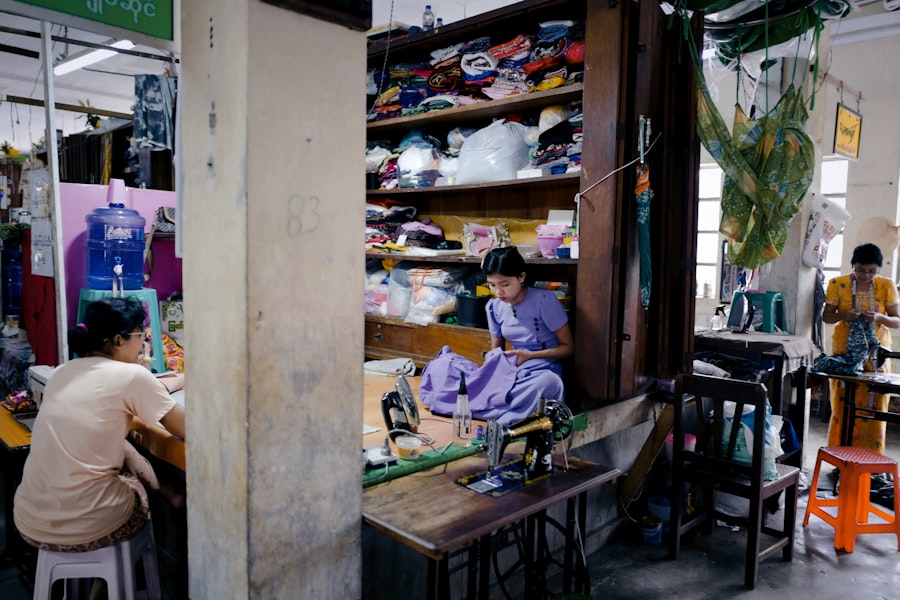
Using Misters and Fans
Implementing cooling methods such as misters or fans can help to keep chickens comfortable during hot weather. Misters can be installed in or around the coop to provide a fine spray of water that helps to lower the ambient temperature and keep chickens cool. Similarly, fans can be used to improve airflow and reduce heat buildup in the coop.
Monitoring and Maintaining Cooling Methods
It’s important for chicken owners to regularly monitor these cooling methods to ensure that they are functioning properly and providing effective relief for their flock. By implementing cooling methods such as misters or fans, chicken owners can help to create a comfortable environment for their flock during periods of high temperatures.
Alternative Cooling Methods
In addition to misters and fans, other cooling methods such as evaporative cooling pads or portable air conditioning units can also be effective in helping chickens beat the heat. Evaporative cooling pads work by drawing warm air through wet pads, which helps to lower the temperature inside the coop. Portable air conditioning units can also be used to provide direct cooling for chickens during extreme heat waves.
Preventing Heat Stress
By implementing effective cooling methods, chicken owners can help to prevent heat stress in their flock and ensure their well-being during hot weather.
Monitoring and managing the flock during hot weather
Monitoring and managing the flock during hot weather is essential for preventing heat stress in chickens. Regularly observing the behavior and condition of the flock can provide valuable insight into their well-being and help chicken owners identify any signs of heat stress early on. It’s important for chicken owners to be vigilant and proactive in managing their flock during hot weather, taking steps such as providing shade, fresh water, and cool treats as needed.
Additionally, monitoring water consumption and egg production can also provide valuable information about the health of the flock during periods of high temperatures. By closely monitoring and managing the flock during hot weather, chicken owners can help to prevent heat stress and ensure that their chickens remain healthy and comfortable. In addition to monitoring the flock, it’s also important for chicken owners to be prepared to take action if signs of heat stress are observed.
This may include implementing additional cooling methods, adjusting feeding and watering schedules, or even seeking veterinary care if necessary. It’s crucial for chicken owners to have a plan in place for managing their flock during hot weather, including knowing when and how to intervene if signs of heat stress are present. By being proactive in monitoring and managing their flock during hot weather, chicken owners can help to prevent heat stress and ensure that their chickens remain healthy and comfortable even in extreme temperatures.
In conclusion, preventing heat stress in chickens requires a proactive approach that includes understanding the signs of heat stress, providing adequate shade and shelter, ensuring proper ventilation in the coop, offering cool treats and fresh water, adjusting feeding and watering schedules, implementing cooling methods such as misters or fans, and monitoring and managing the flock during hot weather. By taking these steps, chicken owners can help to create a comfortable and healthy environment for their flock even during periods of high temperatures. It’s crucial for chicken owners to be vigilant and proactive in preventing heat stress in their flock, as early detection and intervention can make a significant difference in ensuring their well-being during hot weather.
If you’re looking for ways to keep your chickens cool in the summer, you may also be interested in learning about the best heater options for a chicken coop. Check out this article for tips on keeping your chickens warm during the colder months.
FAQs
What are the signs of overheating in chickens?
Some signs of overheating in chickens include panting, holding their wings away from their bodies, lethargy, decreased egg production, and in severe cases, collapse.
How can I keep my chickens cool in hot weather?
You can keep your chickens cool in hot weather by providing plenty of shade, ensuring good ventilation in the coop, offering cool water for drinking, and providing frozen treats such as fruits and vegetables.
What are some ways to provide shade for chickens?
You can provide shade for chickens by using natural shade from trees or shrubs, setting up tarps or shade cloths over the coop and run, and creating a covered area with a roof or awning.
How can I improve ventilation in the chicken coop?
You can improve ventilation in the chicken coop by adding windows or vents to allow for cross ventilation, using fans to circulate air, and keeping the coop clean to prevent ammonia buildup which can affect air quality.
What should I do if I suspect my chickens are overheating?
If you suspect your chickens are overheating, you should immediately move them to a cooler area with shade and provide them with cool water to drink. You can also use a mister or hose to lightly spray them with water to help lower their body temperature. If the symptoms persist, it’s important to seek veterinary care.
Meet Walter, the feathered-friend fanatic of Florida! Nestled in the sunshine state, Walter struts through life with his feathered companions, clucking his way to happiness. With a coop that’s fancier than a five-star hotel, he’s the Don Juan of the chicken world. When he’s not teaching his hens to do the cha-cha, you’ll find him in a heated debate with his prized rooster, Sir Clucks-a-Lot. Walter’s poultry passion is no yolk; he’s the sunny-side-up guy you never knew you needed in your flock of friends!

